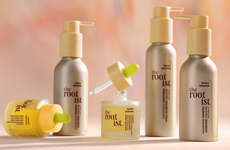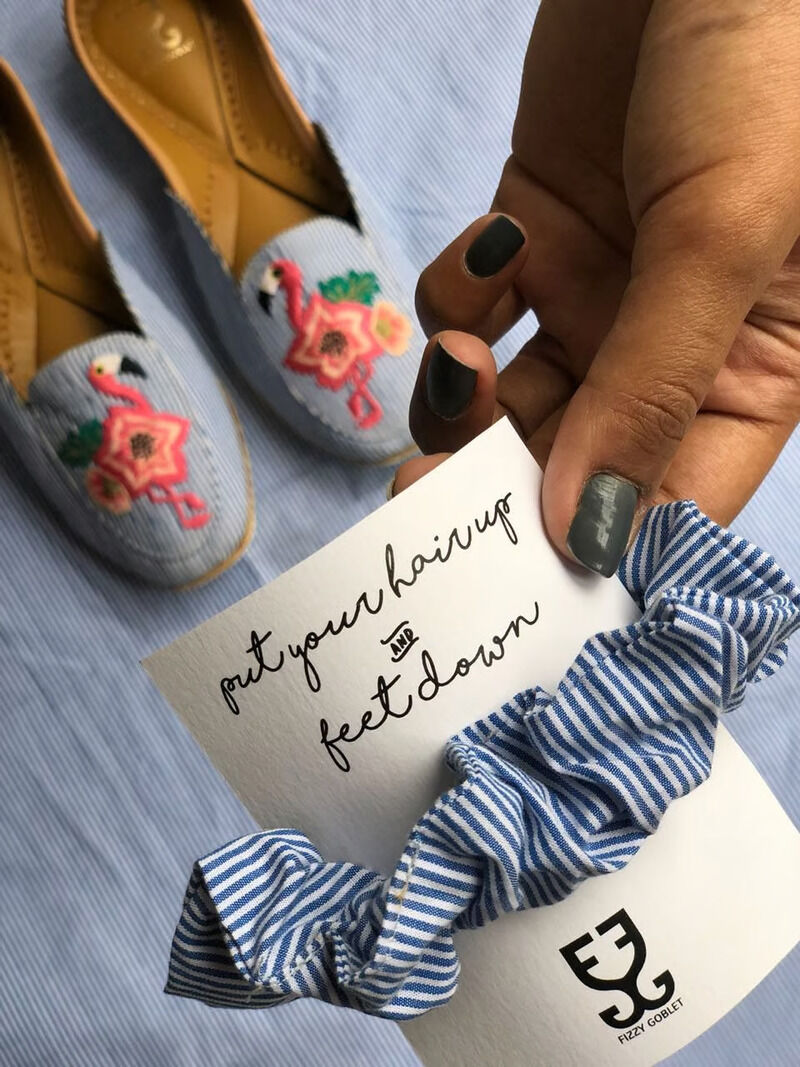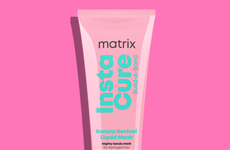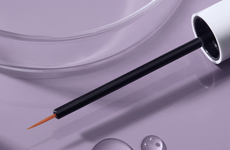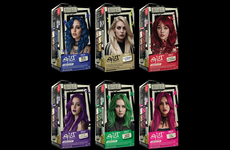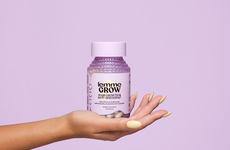
Fizzy Goblet Introduces the New Zero-Waste Hair Ties Using Old Materials
References: global.fizzygoblet & in.fashionnetwork
Fizzy Goblet has debuted a line of hand-crafted, zero-waste hair ties. This new collection utilizes excess fabric from the brand’s signature Juttis, a type of traditional footwear, to create stylish and eco-friendly accessories. The hair ties are crafted from various textiles, including cotton, denim, and Ikat, which are remnants of the Juttis production process.
Each hair tie is meticulously designed to complement the unique patterns and embroidery of the Juttis from which the fabric was sourced, allowing owners to match their elastic to their footwear.
To promote this sustainable accessory line, Fizzy Goblet will be offering a complimentary hair tie with every purchase of its Juttis. This promotional offer lets customers experience the brand's commitment to zero-waste fashion firsthand while enhancing their style with a matching hair accessory.
Image Credit: Fizzy Goblet
Each hair tie is meticulously designed to complement the unique patterns and embroidery of the Juttis from which the fabric was sourced, allowing owners to match their elastic to their footwear.
To promote this sustainable accessory line, Fizzy Goblet will be offering a complimentary hair tie with every purchase of its Juttis. This promotional offer lets customers experience the brand's commitment to zero-waste fashion firsthand while enhancing their style with a matching hair accessory.
Image Credit: Fizzy Goblet
Trend Themes
1. Upcycled Fashion Accessories - Repurposing excess fabric into stylish hair ties, this trend merges sustainability with high fashion.
2. Zero-waste Initiatives - Using remnants from shoe production, this approach minimizes textile waste and promotes eco-friendly manufacturing.
3. Complementary Product Bundling - Offering free hair ties with Juttis purchases enhances consumer experience and promotes brand loyalty.
Industry Implications
1. Fashion and Apparel - Incorporating sustainable practices by utilizing leftover materials, the industry can reduce waste and appeal to eco-conscious consumers.
2. Textile Recycling - Transforming fabric remnants into new products opens up opportunities for innovative waste management solutions.
3. Eco-friendly Accessories - Developing accessories from recycled materials meets growing demand for sustainable products in the fashion market.
6.7
Score
Popularity
Activity
Freshness





